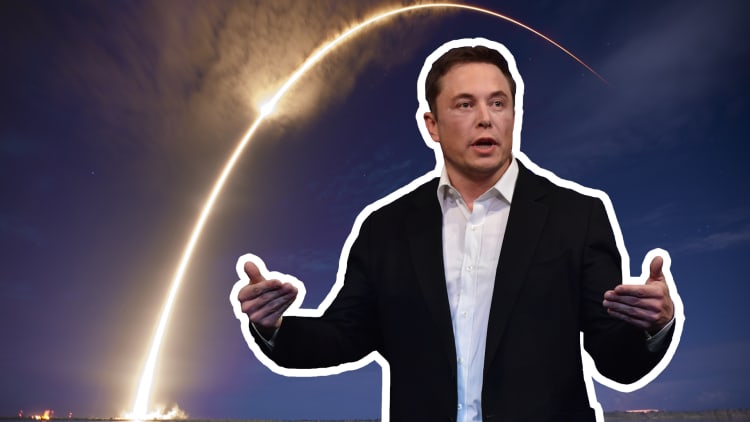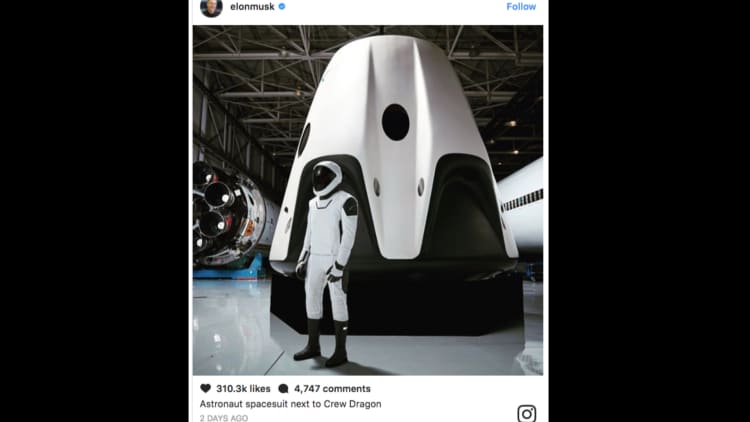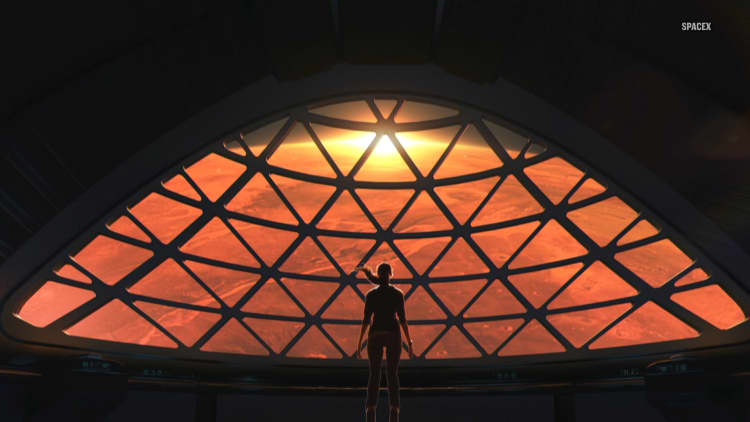Seventeen years ago, Elon Musk knew little about rockets, Mars or space technology. But he did have passion, curiosity and a cell phone. So, he made some cold calls.
These calls didn't just help him understand the business opportunity few could see. They also helped him build the expertise and network he'd need to later found and run SpaceX. This combination of fearlessness and curiosity is an example to anyone looking to build something new.
In 2001, a 30-year-old Musk had already made his fortune twice over, founding and selling companies such as Zip2 and X.Com (which became PayPal) for hundreds of millions. He felt called to something more meaningful than just running another Internet business and decided he would put his money toward saving humanity, and specifically, through life on Mars.
Musk knew he needed to launch probes into space and considered Russian launch vehicles, knowing the cheapest rockets available would help his fortune stretch further. To this end, the space advocacy nonprofit Mars Society put him in touch with Jim Cantrell, an aerospace consultant who had worked for NASA's jet propulsion lab and on a joint Mars balloon mission for the French Space Agency and the Soviet Union.

When Musk made his cold call, Cantrell was driving and could barely make out what Musk was saying, he said in Esquire. "I had the top down on my car, so all I could make out was that some guy named Ian Musk was saying that he was an Internet billionaire and needed to talk to me.'"
Musk's call, says Cantrell, was a tight, overly rehearsed elevator pitch. "It was almost staccato how quickly he spoke," Cantrell recalled in a recent feature for Wired. "Not, 'Hello, how are you?' – sales pitch, boom. Like listening to some televangelist or someone who called me on the phone."
Cantrell would later become an early SpaceX employee and help with the company's founding.
Cantrell said he heard Musk's elevator pitch so often he is still able to recite the speech from memory, more than a decade later:
"I'm Elon Musk, I'm an internet billionaire, I founded PayPal and X.com. I sold X.com to Compaq for 165 million dollars in cash and I could spend the rest of my life on a beach drinking Mai Tais, but I decided that humanity needs to become a multi-planetary species to survive and I want to do something with my money to show that humanity can do that and I need Russian rockets and that's why I'm calling you."
The call with Cantrell helped kick off a multi-year cramming session where Musk reportedly taught himself what he needed to know about rockets. Wrote Cantrell, once "he starts by defining a goal and he puts a lot of effort into understanding what that goal is and why it is a good and valid goal."
Musk borrowed Cantrell's college textbooks on rocketry and propulsion and got reading, eventually being able to recite from memory books like "Fundamentals of Astrodynamics," and the "International Reference Guide to Space Launch Systems."
"He devoured those books," Cantrell said in Esquire. "He knew everything."
Musk continued to pitch himself to experts, building a network of advisors. He would later hire many of Cantrell's colleagues in rockets and spacecraft to be consultants.
"He has a real applied mind. He literally sucks the knowledge and experience out of people that he is around," Cantrell wrote in Quora. "It was like a gigantic spaceapalooza."
While Musk's call with Cantrell went well, not all Musk's pitches were as successful. In fact, Musk gave his cold-call pitch to a Russian rocket designer when he was looking to buy repurposed rockets he had heard the Russians were selling. Cantrell traveled to Russia with Musk for this meeting and says the designer became visibly upset, explaining that the technology was intended as a weapon for war, not for capitalist billionaires to purchase. The designer reportedly even spat on their shoes, Cantrell recalled for Wired.

"Elon turns to me, and he goes, 'Did he spit on us?' And I say, 'Yeah I think he did. I think it's a sign of disrespect,'" Cantrell said.
Meetings like this did not deter Musk, who continued to expose himself to everything and everyone who could teach him something new about rockets. Later in 2001, Cantrell took Musk to the garage of his friend John Garvey, a space tech veteran who would later become Cantrell's co-founder in the space tech company Vector Launch.
Though the rocket failed to launch and blew up right in its test stand, it opened Musk's eyes. "Elon knew that if a small band of Space Cowboys like John could build a 30-foot tall liquid rocket with leftover beer money and regular machine tools, great things were possible with big money, a great team and lots of hard work," wrote Cantrell in Forbes.
"That's where Elon really got his inspiration," Cantrell added in Wired. "He had like a religious conversion at this rocket test."
The moment, made possible only by Musk's dedication to learn everything about his topic, helped him see the potential in building his own rocket and helped lead to the formation of SpaceX in 2002.
"What Elon did was very different. He didn't just throw some play money in. He put in his heart, his soul and his mind."
As of 2016, Musk reportedly still had Cantrell's book on rocket propulsion.
Like this story? Like CNBC Make It on Facebook!
Don't miss:



